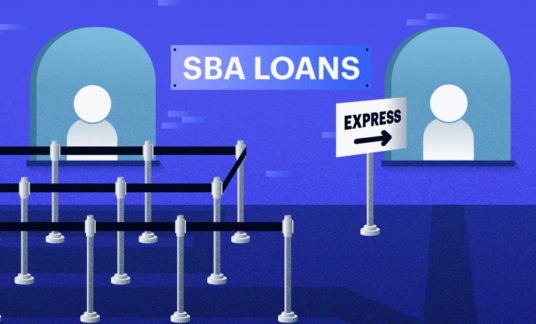Are you looking to open a high-yield business savings account to safeguard your money and earn interest?
With so many available options, deciding what is the best business savings account could seem daunting. However, if you know which features you want, you’ll find the best business savings account with the right mix of services and high-interest returns.
Here are the top 6 picks:
| Bank | Interest Rate (APY) | Fees | Notes |
| Prime Alliance Bank | 0.25% – 0.60%, depending on balance | No monthly maintenance fee | Up to 6 withdrawals or transfers allowed per month |
| Tab Bank | 0.25% for money market and savings account | No monthly fees | Minimum $25 deposit to open an account |
| Capital One | 0.20% for the first 12 months,
drops to standard after a year |
$3/month
(waived w/ $300 balance) |
Easily links with Capital One checking accounts |
| First Internet Bank | 0.40% (with maximum balance of $250,000;
0.25% with a more than $250,000 daily balance) |
$5/month
(waived w/ $1,000 balance) |
ATM card only available for sole proprietors |
| Axos Bank | 0.50% on the first $5 million | No monthly fee w/ $2,500 daily balance | Best fee structure |
| Live Oak Bank | 0.60% | No monthly fees | Online only |
Note: Some of these institutions have brick-and-mortar locations, while others are direct or “internet” banks. If it’s the latter, an online business savings account can yield a higher APY because the bank doesn’t have to pay overhead costs.
What Is a Business Savings Account?
If sales are booming and profit margins trend upward, you may find yourself with a surplus of cash. What if you could make money off this balance without taking on the risks of investing in the stock market? With a high-yield business savings account, you can.
High-yield business savings account interest rates are, on average, 3 times higher than their checking counterparts. You deposit excess funds and earn hundreds (potentially thousands) in interest without playing the market.

Why You Should Open a Business Savings Account
The biggest reason to open up a business savings account is the high yields you can receive. Interest rates have plummeted in the wake of the COVID-19 pandemic’s economic distress. The average annual interest percentage yield (APY) for a savings account is 0.04%; however, some high-yield business savings account rates can give you a better return on investment, ranging from 0.10% to 0.60%.
What makes a high-yield business saving account different?
- Keep Your Money Safe: FDIC insures up to $250,000, so there’s no risk of losing an investment should your bank fail.
- Easy Transfers: You can easily move funds from your savings accounts to checking accounts when you need cash.
- Access to Small Business Loans: Lenders like to see that your business generates enough revenue to save funds. Also, you can use your savings for a down payment and reduce the cost of funding.
How to Compare Business Savings Accounts
With so many banks stating they offer “the best high-yield business savings account in the industry,” it can be confusing and time-consuming to find the right one.
Despite their claims, banks’ high-interest business savings accounts, in general, work the same way: You deposit money, let it accrue interest and then withdraw funding when you need it. Each has its own terms, and that’s what you need to watch out for when making a decision.
Annual Percentage Yield (APY)
APY indicates the total return you’ll get on the money you have in the account per year. Interest rates can be fixed or variable and compound daily or monthly.
Let’s take a look at an example of a business with $25,000 in a savings account with a 1.5% APY.
-
Account Balance x APY = Yield
$25,000 x .015 = $375
The business owner can make an extra $375 just by leaving money in the high-yield business savings account.
High-Interest Business Savings Accounts Fees
The number of fees your bank charges can nullify some of the gains you receive from opening a high-yield business savings account. They’re usually not very high (and can be waived if you keep your account balance above a specified threshold), but it’s important to account for all fees before signing on the dotted line.
If the above scenario included $20 in monthly fees, for example, it would cost $240 of that $375 just to keep the account open.
Look closely at any fees you’ll be charged. If they can be waived, assess whether you can keep the balance high enough to hit the minimums.
Minimum Balances
Some banks require you to have a minimum amount of money in the account at all times.
This amount can be as little as $1, but some larger banks require you to keep thousands in the account.
Access and Customer Support
When it comes to our money, we all want support and access.
Support
Many business owners prefer working with larger organizations that offer face-to-face customer support. If going to your local branch and speaking to a person about your account is important to you, an online business savings account through a web-only bank might not make sense for you.
Access
Small business ownership is chock full of unexpected expenses. You never know when you may need to dip into your savings for a leaky pipe, inventory shortfall or business opportunity. Therefore, accessibility is a huge draw for many small business owners.
Not having a debit card or network of ATMs to turn to makes it difficult to get your money fast. Make sure to take this consideration into account when choosing a business savings account.
-
Are Business Savings Accounts Taxed?
Any interest you accrue in your business savings account is taxable.
You’ll need to fill out IRS Form 1099-Int annually to report this income.
Quick Reviews: Best Business Savings Accounts
After assessing how high-interest business savings accounts could help you and prioritizing what you want from the bank, let’s see what each has to offer.
There’s no right or wrong answer to “What is the best business savings account?” Take a look at the business savings accounts interest rates and make a comparison, and weigh the banks’ regulations before making your decision.
Prime Alliance Bank: Best for Low Minimum Balance
Prime Alliance Bank offers 3 tiers of high-interest business savings accounts. For at least $1 (and up to 1 cent short of $100,000), you can net 0.25% interest and 0.25% APY. If you have $100,000 to nearly $200,000 in your savings account, you can receive 0.45% interest and 0.45% APY. The top APY of 0.60% is for savings accounts with $200,000 or more.
There’s no required minimum balance to maintain your savings account, but you need to have $1 in order to earn interest. This makes Prime Alliance a potential top choice for a business savings account if you can’t maintain a large balance.
Prime Alliance has its physical location in Utah, but it serves customers nationwide, and you can access mobile and online banking for your high-yield business savings account.
There’s also no monthly fee for your savings account, and you’re allowed an unlimited amount of deposits each month. However, you can withdraw or transfer funds 6 times per month.
Tab Bank: Best Money Market Account
With Tab Bank, business owners can choose whether to put their funds into a traditional savings account or a money market account. Both business savings account rates and money market rates are currently 0.25%. However, money market funds are invested, so it has the potential for higher yields than a business savings account.
The money market account’s funds are more accessible; the Tab Bank’s savings account doesn’t include an ATM card or checks.
You can open a money market account or high-yield business savings account with a $25 deposit, and you must maintain a $1 balance.
Capital One: Good Balance Between Traditional and Online-Only Banks
Known mostly for their credit cards, Capital One offers a great high-yield business savings account solution for those who want the comfort of working with a traditional bank with the APY of online-only competitors.
The 0.20% introductory APY is on par with many online-only banks, but it drops to the standard rate, after 12 months. This number is still higher than most traditional banks and doesn’t come with minimum balance requirements.
Capital One only requires a $250 minimum deposit to start, and their low $3 monthly fee is waived if you carry a balance of $300 or more.
You can link your Capital One checking account for quick transfers, making for seamless access to your funds.
There are ATM fees for non-Capital One ATMs, which can cut into your savings if you frequently need to make withdrawals at other kiosks.
Capital One is a great option for:
- Owners who want a high introductory APY
- Those uncomfortable working with an online-only bank
- Smaller businesses who will carry lower balances
First Internet Bank: Highest Ongoing APY
Online-only First Internet Bank offers an average traditional savings account, but with their money market account (MMA), you’ll accrue more interest than any other option.
Money market accounts, as their name suggests, are tied to the current market rates. This means they aren’t fixed but ebb and flow alongside the economy.
A $5 maintenance fee will be waived if you have a balance over $1,000, but transaction and deposit fees remain.
Debit cards are only issued to sole proprietors, which can limit your access to funds. Even if you do acquire a card, you’ll still be on the hook for ATM fees.
First Internet Bank is an excellent option for:
- Owners who prioritize APY
- Those who don’t require ease of access and face-to-face customer service
- Sole proprietorships
Axos Bank: Best Fee Structure
Another online-only organization, Axos Bank, aims to bring business savings into the modern era.
Accounts enjoy a 0.50% APY, which is average for other online-only options, but it’s well over the rate you’d receive at a traditional bank.
Axos provides you with a free debit card (although they don’t have any dedicated ATMs) and access to online and mobile banking at no charge.
Axos Bank offers the best fee structures. With an average balance over $2,500, you’ll have no monthly maintenance fees to worry about.
Axos Bank is a great option for:
- Owners who don’t want to pay fees
- Smaller businesses who will carry lower balances
- Those who don’t prioritize access and face-to-face customer service
Live Oak Bank: Limited Fees for Active Accounts
Our last online option, Live Oak Bank, offers a high 0.60% APY with an appealing fee structure.
The APY isn’t at the top of the market but is still considerably higher than most alternatives, including other online-only banks.
You won’t be charged any monthly maintenance fees unless your account goes dormant, you make over 6 transactions or the balance slips to $0. Wire transfer and stop payment fees apply.
Live Oak Bank is an excellent option for:
- Owners who make a few transactions per month
- Those who prioritize APY over access
- Those who don’t foresee using wire transfer or stop-payment services
Choosing the Best Business Savings Account
When you’re deciding between the top high-interest business savings accounts, you might be tempted to select the bank with the highest APY. Don’t. Take a hard look at your savings goals and the level of access you need before making a final decision.
If your savings goals are modest, you may choose to keep your money in a checking account. But it’s always best to save money when you can, no matter how small the amount may be. You never know when you’ll need some extra cash down the road.
If you plan on expanding your business in the future, start thinking about which account will get you where you need to be. Even if the amount you save isn’t enough to finance the whole expansion, it could be enough to cover a down payment on a small business loan.











